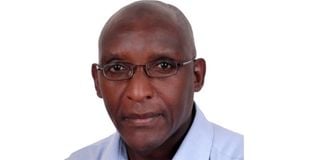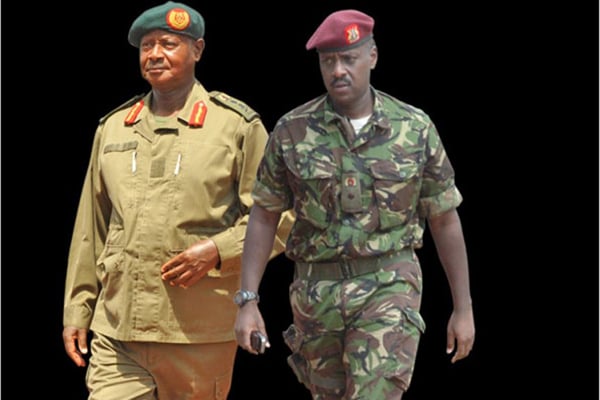Prime
Are Kenyans thinking of war over Migingo?

Author: Okodan Akwap. PHOTO/FILE.
What you need to know:
- In 2004, Uganda sent armed security people to the island and hoisted the national flag there.
Whoever thought that Kenyans took Gen Muhoozi Kainerugaba’s tweets about invading their country as a joke should think again. And whoever thought that President Museveni’s apology to the Kenyan “brothers and sisters” settled the matter should think again.
On October 17, Kenya’s National Assembly’s Committee on Appointments, chaired by Speaker Moses Wetangula, vetted Mr Aden Duale, the nominee for Defence minister. Two of the first batch of questions concerned Uganda.
First, Ms Gladys Boss, the Deputy Speaker of the National Assembly pointedly asked Duale: “Idi Amin said that the Kenyan territory, part of it the Migingo Island, was, in fact, a part of Uganda. That problem has not been resolved. There’re many recurrent arrests of our fishermen. What are you going to do to secure that contested part of Lake Victoria?” Duale answered that there’s a government boundary commission that was set up to deal with the matter.
Second, his views were sought on the “serious security matter” of Muhoozi’s tweets. Duale said: “Our country doesn’t react to tweets. We react to official government positions. Muhoozi and President Museveni have since apologised for the tweets.”
But what I found strange was the mention of “Idi Amin.” Was it a slip of the tongue? I don’t think so. Ms Boss is one of the sharpest lawyers in Kenya. I think she was making a thinly veiled comparison of President Museveni to Amin. In 1976 Amin demanded back the Western areas of Kenya that colonialists took away from Uganda.
Prof Makau Mutua, a senior academic-cum-politician aligned to Mr Raila Odinga and Sunday Nation columnist, also mentioned Amin’s name. In his piece titled, ‘Muhoozi, a test tube Idi Amin?’ in Sunday Nation of October 9, he wondered whether “perhaps Mr Museveni and his son are testing the new pretenders in Nairobi.”
He continued: “Perhaps that’s the reason Mr Museveni reportedly favoured William Ruto in the August poll. Did he see in Mr Ruto a leader he could manipulate? After all, he’s the wily chameleon of East Africa.”
The night before Duale’s vetting, President Museveni’s interview with Ms Sophia Wanuna was aired on KTN News. One of the questions was on Migingo. The President told the Kenyan journalist that Migingo Island is in Kenya, but the water is in Uganda. There! Fish don’t live on rocks, do they? Museveni said Kenya and Uganda should agree on how to use their resources instead of starting “avoidable wars.”
In 2004, Uganda sent armed security people to the island and hoisted the national flag there. Thereafter, war drums started beating a muffled sound. In fact, on February 18, 2019, Al Jazeera reported that local fishermen referred to the dispute as “Africa’s smallest war.”
The bone of contention seemed to be the declining fish stocks in Lake Victoria and the growing global demand for the Nile Perch. That’s what may ignite a cross-border war over fish. However, many Ugandan politicians talked about it as a simple issue between “brothers.”
I disagreed. In an article titled, ‘The row over Migingo is not simple’ in The New Vision of April 27, 2009, I wrote: “Now, more than ever before, I am convinced that the matter of our having ‘brothers’ in Kenya or elsewhere is of little consequence to regional integration.”
As I have argued before, the decision in 1999 to revive the East African Community (EAC) at the customs union stage – skipping the free trade area stage – complicated EAC’s step-by-step process to a political federation.
Tanzania and DR Congo’s membership in the Southern Africa Development Community (SADC) worsens matters. SADC remains a free trade area since it was formed in 1980 as the Southern African Development Co-ordination Conference (SADCC) in Lusaka, Zambia, to advance the cause of national political liberation in Southern Africa. The name changed in 1992 with a focus on economic integration.
ALSO READ: Muhoozi apologises over Kenya tirade
The two countries will have to choose where to belong when SADC finally launches its customs union. The World Trade Organisation’s rules of origin make it difficult for a state to belong to two customs unions.
Two last questions on Migingo: Were we prepared to go to war to defend our national interests? Are Kenyans now thinking about war over Migingo?
Mr Okodan Akwap (PhD) is an associate consultant at Uganda Management Institute.




